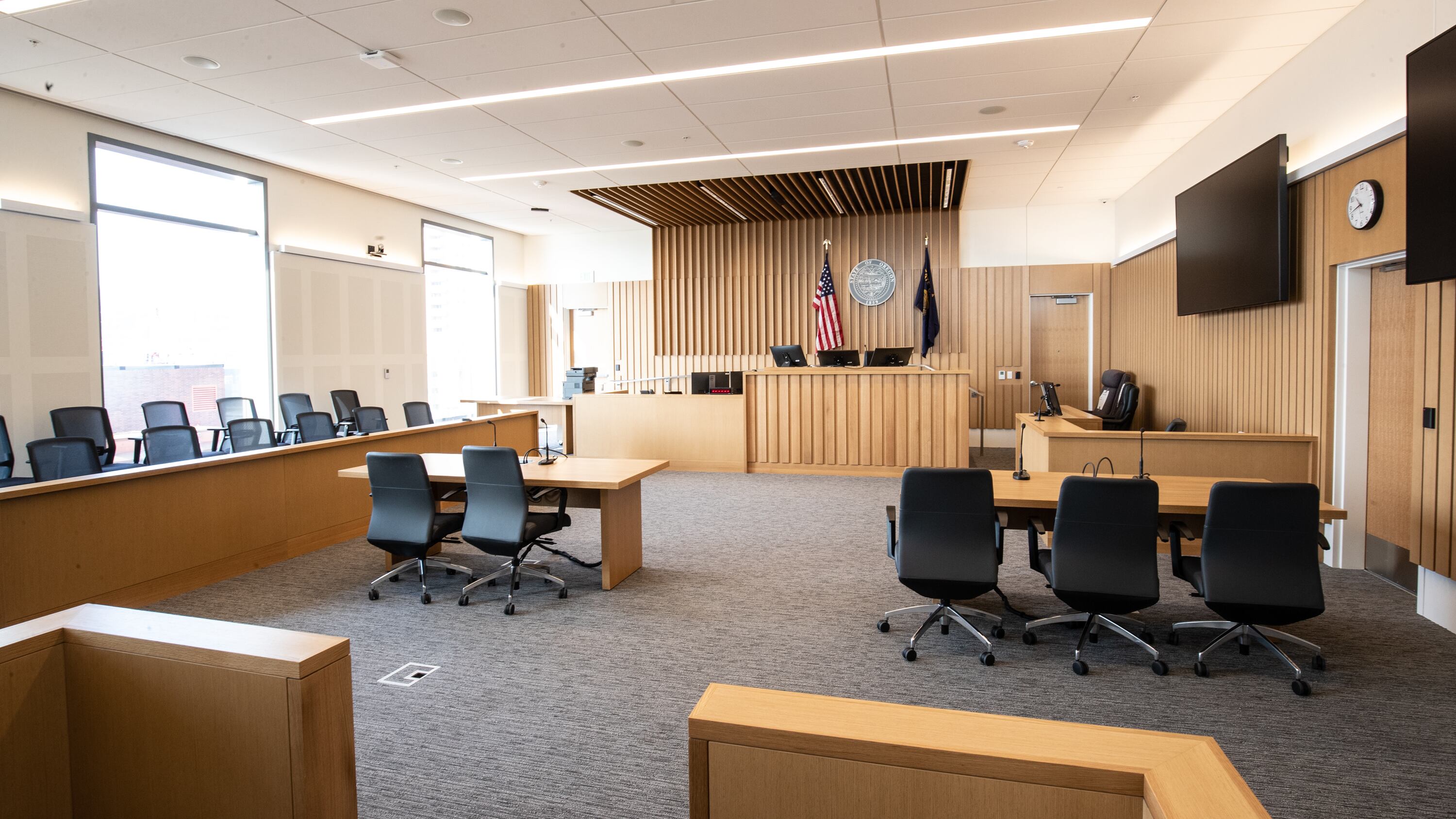On the morning of July 6, a judge, a prosecutor and a defense lawyer sat in a downtown Portland courtroom and waited. They were there to record the guilty plea of a man accused of a hit-and-run. Only there was one problem: The defendant wasn’t there.
And it wasn’t his fault. The Multnomah County Jail was on lockdown—there’d been a COVID-19 outbreak, and the jail had lost track of the spreaders. No one had told the court.
“We were unaware where the few positives were housed,” wrote Multnomah County Sheriff’s Capt. Stephen Reardon to Circuit Judge Andrew Lavin, who had complained about the wasting of court resources in an email thread newly obtained by WW.
Reardon, who runs “court services” for the Multnomah County Sheriff’s Office, told Lavin the jail had developed a plan to prevent similar incidents in future. But that plan hasn’t stopped a torrent of complaints about the jail’s inability to get inmates to court on time.
Last year, clerks began keeping a list. Since Oct. 22, 2021, they’ve recorded 420 delays—many over an hour long.
The holdup in July may have been just a matter of miscommunication, but it comes as jails are struggling with a staffing shortage that is sowing chaos throughout the criminal justice system. The lack of public defenders remains the most critical issue—but the shortage of corrections staff is causing headaches at both the jail and the courthouse.
Hearings are rescheduled at the last minute. Jurors have to stand outside in the rain as they wait their turn at the jammed security checkpoint. And public defenders complain they can’t get in touch with their clients because no one is there to escort them to the phone.
The number of corrections deputy vacancies at the Multnomah County Sheriff’s Office doubled between the 2021 and 2022 fiscal years, even as the agency cut positions. As of earlier this month, there were still 35 vacancies.
And with a tight hiring market only getting tighter, there’s no relief in sight.
“It just delays everything,” Presiding Judge Judith Matarazzo tells WW. She’s trying to whittle down a backlog of cases held up by the pandemic, and the delays are “making that more difficult,” she says. Defense lawyers and judges have packed their schedules, causing even short delays to cascade into longer ones.
In August, Judge Nan Waller’s courtroom waited 65 minutes for a plea hearing to begin. (“Told delay would take 45-60 minutes, expectations met,” the clerk noted.)
In dozens of cases, hearings have had to be rescheduled. Last October, a hearing was canceled after a clerk was told there would be a two-hour wait.
In a February email, public defender Chris O’Connor told Chief Criminal Judge Cheryl Albrecht there were “notable jail phone access issues.” He called his client late in the day on a Friday only to be informed by a jail deputy, “We are shutting down.” Albrecht replied she was collecting complaints and would engage in “conversations this week, hoping to mitigate some of these problems.”
Eight months later, the problem still isn’t fixed. Albrecht referred questions to Judge Matarazzo, who has been meeting with county administrators about the staffing issue. But there’s no immediate solution, Matarazzo says. “They don’t have enough people to do what they need to get done.”
This summer, administrators began closing the main lobby at the Inverness Jail in Northeast Portland at 3 pm. Meanwhile, phone-in access to adults in custody is dependent on staffing, says Chris Liedle, spokesman for the sheriff’s office.
That office is still working on solutions, including a “scheduling program” to give inmates evening access to the phones, Liedle says. In the meantime, he adds, the agency is “aggressively recruiting and hiring to continue to provide the highest level of service possible.”
Matarazzo isn’t reassured. “What’s the long term plan?” she asks, noting that the problem will only get worse as court filings return to pre-pandemic levels.
“I don’t want to be sitting here three years from now having the same conversation.”

